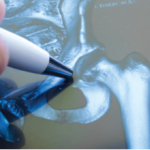Exercise can improve the outcomes in hip and knee replacement surgery
Search results for: Total knee replacement

3 AC&R Study Summaries: MoCA Screening in SLE, Pediatric Social Disadvantages & Surgical Weight Loss Interventions
MoCA as a Screening Test in SLE Assessing the utility of the Montreal Cognitive Assessment (MoCA) By Oshrat E. Tayer-Shifman, MD, Kimberley Yuen, BSc, MD, & Zahi Touma, MD, PhD, FACP, FACR Why was this study done? Cognitive impairment is a common manifestation of systemic lupus erythematosus (SLE), with a prevalence of 40% based on…
IL-1-Beta Blockade May Slow OA Progression
NEW YORK (Reuters Health)—Interleukin (IL) 1 beta is a key player in the osteoarthritis (OA) inflammatory process and inhibiting it may help slow the disease process, according to an exploratory analysis of data from the CANTOS trial.1 CANTOS participants who were treated with the IL-1-beta inhibitor canakinumab had a significantly lower rate of total hip…

Management of Meniscal Tears: Surgery May Not Be Necessary
Patients with meniscal tear experience similar levels of reduced pain and improved physical function when treated with either arthroscopic partial meniscectomy or physical therapy, according to a recent study. The study also found these improvements were long term—lasting through the five-year follow up…

The 2019 ARP Awards of Distinction & ACR Masters
ATLANTA—At the 2019 ACR/ARP Annual Meeting in November, the ACR and the ARP honored a group of distinguished individuals who have made significant contributions to rheumatology research, education and patient care. This month, The Rheumatologist speaks with the winners of the ARP Merit Awards about their individual contributions to advancing rheumatology. You’ll also find a…

No Gain with Pain: Exercise & Physical Function in Patients with Rheumatic Disease
Pain can deter patients with rheumatic disease from engaging in physical activity. But the latest research shows exercise helps reduce pain, & other influences may also affect patients’ activity levels, particularly after surgery…

State-of-the-Art Approaches to Rheumatic Disease Diagnosis, Management & Treatment
CHICAGO—Held during the 2018 ACR/ARHP Annual Meeting, the ACR Review Course covered a wide range of topics for rheumatologists—from advances in pain and rheumatic disease management to the intersection of rheumatology and neurology. Session speakers shared insights, as well as state-of-the-art approaches to diagnosis, management and treatment. Inflammatory Myopathies Julie J. Paik, MD, MHS, assistant…

The 2018 ARHP Merit Awards & ACR Distinguished Fellows
CHICAGO—At the 2018 ACR/ARHP Annual Meeting in October, the ACR and the ARHP honored a group of distinguished individuals who have made significant contributions to rheumatology research, education and patient care. This month, The Rheumatologist speaks with the winners of the ARHP Merit Awards about their individual contributions to advancing rheumatology. You’ll also find interviews…

Flare Risk Increases When Medication Is Stopped Prior to Arthroplasty
After total hip or knee arthroplasty, flares are common in patients with rheumatoid arthritis (RA), according to a recently published study.1 Higher disease activity at baseline appears to be linked to flares, but use of such medications as biologics and methotrexate did not independently predict flaring. “Contrary to the notion that patients with established RA…

Ethics Forum: Plagiarism in EMRs Saves Time, But Can Raise Risk of Errors
Case You’ve been asked to see an inpatient for a rheumatologic consultation. After seeing the patient, you enter an initial consult note in the electronic medical record (EMR). The next day, when you write a follow-up note for this patient, you copy part of your assessment and plan from your prior note. Soon after you…
- « Previous Page
- 1
- 2
- 3
- 4
- 5
- 6
- …
- 11
- Next Page »